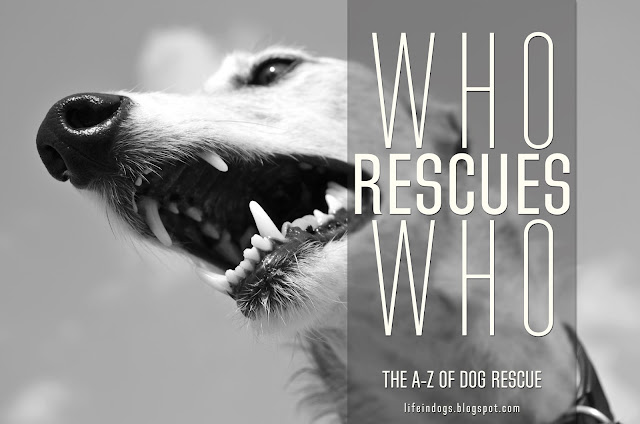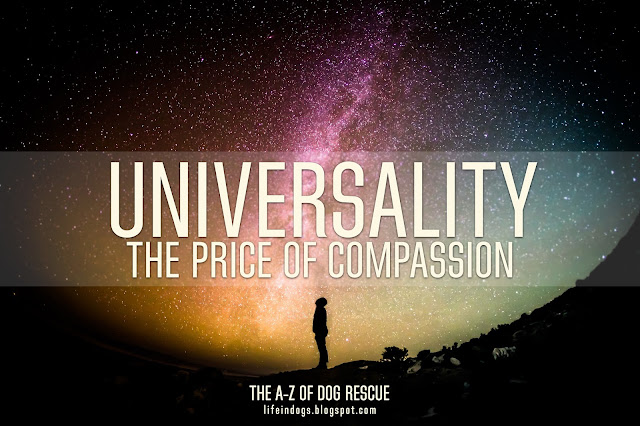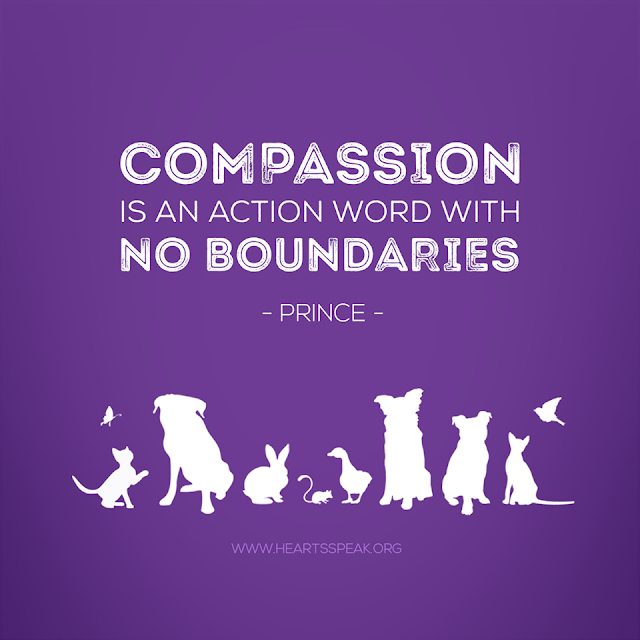 |
| As defined by the wise folk of Merriam-Webster |
Animal rescue, like anything that involves intense emotional involvement—religion, politics, vaccines—has its share of zealots. I am the sole possessor of Truth. Righteousness is mine. (You know the drill.)
Look, I have nothing against deep convictions, or the passion to defend them. But there’s a fine, and murky, line between that and bigotry.
You’d think rescuers, being so compassionate, would extend at least some of that compassion to fellow humans, even to the ones who aren’t quite there yet in terms of illumination, those whose understanding of the stuff that really matters (It’s About The Dog) is somewhat under-developed.
Alas, no.
You want to make an enemy for life? Piss off a rescuer.
Granted, we probably won’t get pissed at any of the ‘normal’ stuff, like you standing us up for a date, or posting an unflattering photo of us on Facebook; it’ll be over the fact that You bought a puppy WHERE??? Or because you moved and, instead of bringing your dog along, you rehomed him. Or maybe you happened to mention in passing that you’re looking for a purebred male to breed your pedigreed Afghan hound.
Whatever it is, chances are you won’t understand what you did wrong. But the consequences will be swift. And thus the fierce hand of god smote the heathen heretic in holy righteousness.
I am not free of sin, so this isn’t about throwing stones—or, rather, if any stones need to be thrown, this is me volunteering as target practice. The truth is that it’s this zealot attitude of rescuers that gives all of us, even large-scale organizations like PETA and Greenpeace, a bad name.
If rescue is about improving the quality of life for animals, those of us involved in making it happen need to rethink our strategy. I don’t mean that we all need to become fake-smiley PR-ey lobbyists, but… Maybe just, you know, tone the bigotry down a notch.
It is, after all, About The Dog.
(And, one of these days, I’ll start listening to my own advice.)
~ * ~
This has been an amazing month, and an amazing Challenge. You know, I almost didn't do this A-Z of Dog Rescue series. I spoke to a few (non-blogger) people about the theme, and none seemed thrilled. Up until the Theme Reveal in March, I was still debating... Should I, shouldn't I. In the end, it wasn't conviction that won out but a lack of any other alphabet-friendly ideas—and never have I been happier that the brainstorming failed. I knew the series would appeal to only a select group, but I never imagined the group would be so large, so diverse, so warm, so full of intelligent input and marvelous stories to share and enrich these posts with. It has been so rewarding to have so many repeat visitors; it feels like we've built a little community here, and I'm honored by that. I look forward to staying in touch, both here and at your own blogs—I've discovered so many fabulous ones this month!—throughout the year.For a wonderful month. For all your encouragement (it's thanks to you that these posts will soon be collected into a book!). For the love you give, have given, and will give to your furry four-legged family members, if you have them. For the interest with which you've followed this series if you don't. For every comment, every share, every suggestion. For... well, everything.
 |
| Masha danki is 'thank you very much' in Papiamentu, the language of Curaçao. And it's never been said as heartfelt as today, to you. |
See you soon!

















